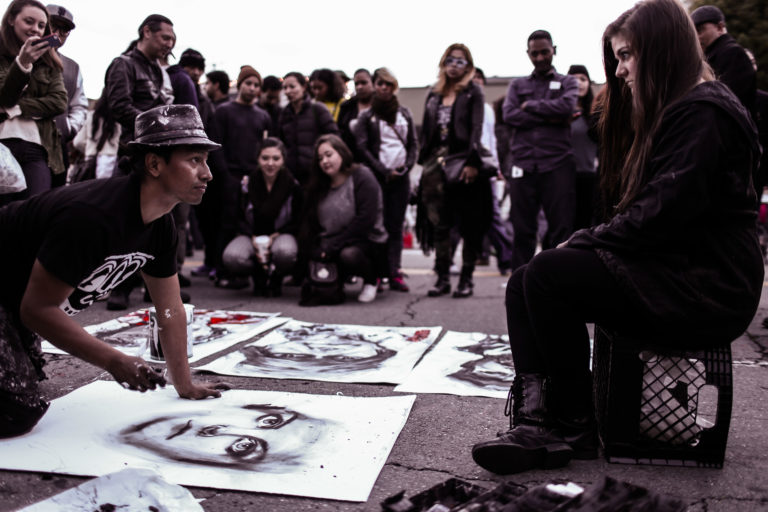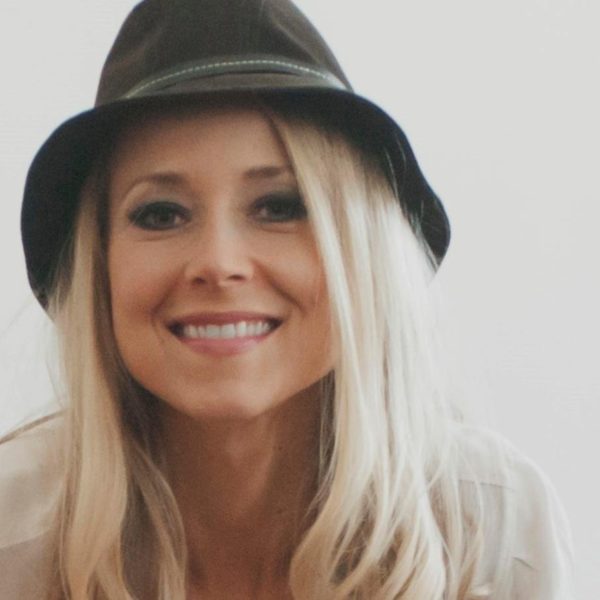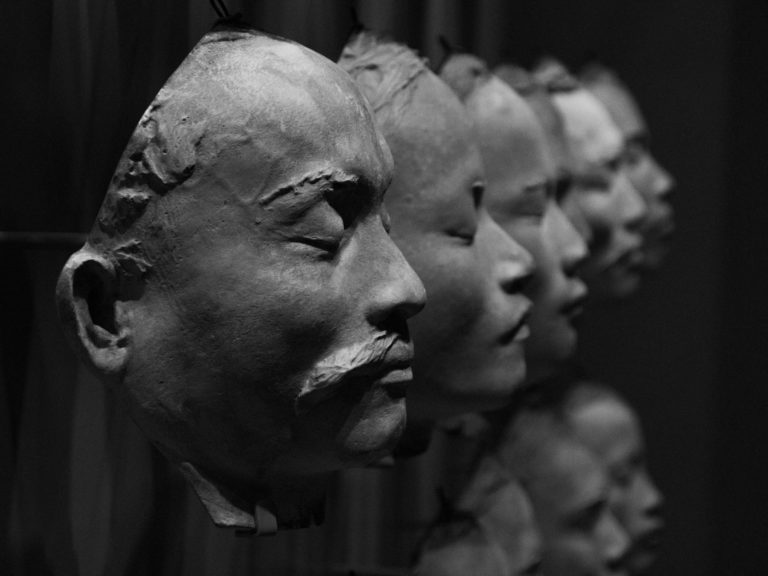
Image by Amir Aziz.
Seeing Injustice with Bravery
“There are two ways to be fooled. One is to believe what isn’t true; the other is to refuse to believe what is true.”
— Søren Kierkegaard
We have all, no doubt, refused to see things about the world and about ourselves that exist in plain sight: our mistreatment of a loved one, an addicted friend’s cries for help. A Texas oilman might maintain that climate change isn’t a result of the petroleum industry’s emissions when the truth risks his profits. In tragic form, priests or coaches might “look the other way” as altar boys or football players are sexually abused — potential public disgraces to a church or a team.
The more inconvenient the truth, the greater human propensity to deny it.
For those who have been innocently or willfully ignorant, today’s news might seem to indicate that the world is going to pot. The “good old days,” however, were only good for some — say, white, straight, Christian, male Americans with steady jobs and plenty to eat. (Perhaps it’s no coincidence that those demographics are the base of today’s most conservative political contingents.)
Whether consciously or subconsciously, they might seek to preserve a social order that favors them. One way to do so is to refuse to validate the grievances of the subjugated, whether by acquitting white policemen guilty of misconduct or by disbelieving women who have been raped.
But camera phones don’t lie. We’re living in a moment when smartphones and social media allow movements like Black Lives Matter to show the world what oppressed groups have known and endured for centuries. For those shocked by images of racist police brutality, only the privileged regard an old problem as a recent one. As Ta-Nehisi Coates pointed out:
“It’s the cameras that are new. It’s not the violence that’s new.”
Today’s technology at once dismays us with the tragedies it records and forces all of us to reckon with the utter normalcy of those tragedies.

When the #yesallwomen hashtag emerged a couple years back, prompting thousands of women to share online testimony on the pervasiveness of sexual harassment and assault, it wasn’t their stories that surprised me. What shocked me was how shocked men were. In comment fields, they appeared rattled by women’s accounts of being violated routinely.
How could men not already know all this? I wondered. Where have they been? Then I remembered ex-partners who invariably missed something some man did to me in public — say, a stranger groping me in a bar or a pack of men yelling at me on a sidewalk when my partner was a few feet away and I appeared to be alone.
“You didn’t see that?” I’d ask, upset — not because I wanted “protection” or avenging, but because I wanted my experience to be understood by someone I loved.
No, they didn’t see it. They hadn’t had to maintain a hypervigilance against male strangers their entire lives, so maybe they just weren’t looking. Even when they were looking, though, sometimes they still couldn’t see. Privilege can cast a veil.
The good news: When we feel threatened by the facts of our personal and political realities, we must be within reach of a breakthrough in awareness. As Tibetan Buddhist Pema Chödrön wrote,
“Fear is a natural reaction to moving closer to the truth.”
In moments of resisting what’s right before our eyes, how might we push past that fear, past the blind spots of our own perspectives, to find more expansive truth?
A good place to begin is humility.
Earlier this month, the police chief of Wichita, Kansas, invited local Black Lives Matter activists to have a sincere dialogue in the form of a cookout with both hard conversations and upbeat music. Officer Aaron Moses, a 25-year-old white man, made the internet rounds for his enthusiastic dancing at the event. He wasn’t at the cookout to ask for a pat on the back, though. He was there to have his eyes opened to the experiences of a community he serves.
“I will never know what it’s like to grow up and not trust a police officer,” he told CNN. “I’ll never know what it’s like to grow up in a minority community.”
Once we admit that there is plenty about the world that we don’t know, a second step out of darkness might be to actively seek education, information, and other perspectives.
In a recent StoryCorps interview, a woman named Storm Reyes, who grew up in migrant labor camps across Washington state, recalled a bookmobile visiting the fields when she was twelve.
“The night before the bookmobile had come, in the camps there was an elder who was telling us about the day that Mount Rainier blew up. So I told the bookmobile person that I was a little nervous about the mountain blowing up. And he said to me, ‘the more you know about something, the less you will fear it.’ And he gave me a book about volcanoes.”
Even if we fail to educate ourselves about the world, though, even if we fail to be humble before it, today’s unrelenting, real-time documentation forces us to look — whether we want to look or not.
Where once claims of unfair treatment were dismissed, now video of unarmed black men being shot by police officers will be seen. Where once rape reports were doubted, now a text message on a rapist’s phone reading “WHOS TIT IS THAT” will be seen. So many injustices that go back generations — obvious to the oppressed and invisible to or ignored by the rest — will be seen. Interpretation of documented brutality may depend on who beholds it. Thanks to technology, though, the bare facts must now be acknowledged.
In this regard, today’s sobering news stories provide an opportunity both for wounded groups to receive justice and for the rest of the country to wake up from its convenient, collective nap.
Adrienne Maree Brown wrote via Instagram this month:
“Things are not getting worse, they are getting uncovered. We must hold each other tight and continue to pull back the veil.”
As individuals, we are each awake and asleep in different ways, depending on our life experiences. As a country, though, we carry every injustice together in one ancestral, social DNA. Let’s finally face them together with bravery. Let’s open our eyes in order to open our hearts. Let’s rejoice that the skeletons are marching right out of our country’s closet, with livestreaming cell phones in their hands

.

